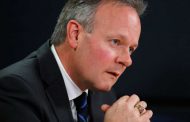
Federal lawmakers have released excerpts from thousands of documents detailing how two drugmakers hiked prices to squeeze more revenue from some live-saving medicines, an exercise which has recently sparked public outrage.
The most hated CEO in America: Martin Shkreli, who raised price of a single Daraprim pill to $750
 The 32-year-old likes sunglasses, golf shirts, the hip-hop artist Eminem, a bottle of 1982 Lafite-Rothschild, and increasing the price of a pill used by people who suffer from HIV. Read on
The 32-year-old likes sunglasses, golf shirts, the hip-hop artist Eminem, a bottle of 1982 Lafite-Rothschild, and increasing the price of a pill used by people who suffer from HIV. Read on

The congressional review of a lot more than 300,000 pages from Turing Pharmaceuticals and Valeant Pharmaceuticals highlights the internal strategies the businesses used to dramatically raise prices of drugs for patients with heart problems or conditions for example AIDS.
The new documents were released Tuesday by Rep. Elijah Cummings, D-Maryland, ahead of a hearing Thursday to examine spikes in prices for many drugs. Cummings has used his ranking position atop the home Committee on Oversight and Government Reform to investigate several firms that have purchased previously low-cost drugs and jacked up the prices many times over.
Cummings said in a statement the documents show “that many drug information mill lining their pockets in the cost of some of the most vulnerable families in our nation.”
The document release uses Turing’s former CEO Martin Shkreli last year had become the poster child of pharmaceutical-industry greed after hiking the cost of a life-saving drug called Daraprim by a lot more than 5,000 percent. Daraprim is the only approved drug for any life-threatening parasitic infection called taxoplasmosis, which mainly strikes patients with weakened immune systems, including individuals with cancer and AIDS. The patent around the drug expired decades ago.
We raised the price from $1,700 per bottle to $75,000. Ought to be a very handsome investment its us
Company presentations released Tuesday reveal that as soon as last May, Turing planned to show Daraprim right into a $200-million-a-year drug by dramatically increasing its price. Turing purchased the six-decade-old drug from Impax Laboratories in August for $55 million and promptly raised its price.
@JohnCFierce It's a great business decision which benefits our stakeholders. I don't expect the kind of you to definitely procedure that.
— Martin Shkreli (@MartinShkreli) September 20, 2015
https://twitter.com/MartinShkreli/status/631483778158993409
Shkreli said within an email to 1 contact: “We raised the cost from $1,700 per bottle to $75,000. Ought to be a really handsome investment for all of us.”
But anticipating a potential backlash, the organization warned within an internal memo: “HIV patient advocacy may react to price increase … HIV community is highly organized, sensitive and action-oriented.”
House staffers said they received a lot more than 250,000 pages of documents from New York-based Turing included in its investigation.

In addition, the committee reviewed more than 75,000 pages of documents from Canadian drugmaker Valeant and says they reveal that CEO J. Michael Pearson chose to buy two life-saving heart drugs, Nitropress and Isuprel, to dramatically hike prices and drive up his company’s revenue and profit.
Nitropress and Isuprel treat abnormal heart rhythms, congestive heart failure and hypertension. Laval, Quebec-based Valeant Pharmaceuticals International Inc. bought the drugs for $350 million from Marathon Pharmaceuticals in regards to a year ago after which tripled the price for one and increased the other sixfold. A memo to people in the home Committee on Oversight and Government Reform from staff members noted that this came a few years after Marathon imposed its very own, steep price hikes.
The memo also said Valeant identified revenue goals first and then drug prices to reach those goals. The drugs generated $547 million in revenue and around $351 million in profits last year alone.
Valeant used patient assistance programs to distract attention and justify its price hikes, the memo noted. It cited correspondence from Valeant marketing executive Jeff Strauss, who reviewed a business response to a person who complained about price increases. Strauss noted that Valeant was providing the drug to patients in a minimal cost of a maximum of US$25 for any 30-day supply.
“These patients are not profitable for Valeant, and so the price increases counterbalance the expenses associated with supporting this initiative” Strauss wrote. “Kind of hard to color us as greedy when we have removed financial barriers for patients.”
On Thursday, the home Committee is scheduled to hear testimony from Turing’s chief commercial officer, Nancy Retzlaff and Valeant Pharmaceutical’s interim CEO, Howard Schiller. Schiller was appointed towards the position recently after Pearson was hospitalized with severe pneumonia.
Shkreli has indicated through his attorney that he plans to refuse to respond to questions, citing his Fifth Amendment to avoid self-incrimination.
The 32-year-old former hedge fund manager was recently charged with securities fraud and conspiracy associated with another pharmaceutical company he ran before founding Turing.
Cummings first requested documents from Valeant and Turing last August and September, respectively. Both companies initially refused to comply, prompting Cummings and other Democrats to request that their Republican colleagues issue subpoenas for that information.
Earlier this month, Republican Chairman Jason Chaffetz of Utah signed a subpoena for Shkreli and invited Valeant’s interim CEO Howard Schiller to testify.
? Thomson Reuters 2016








